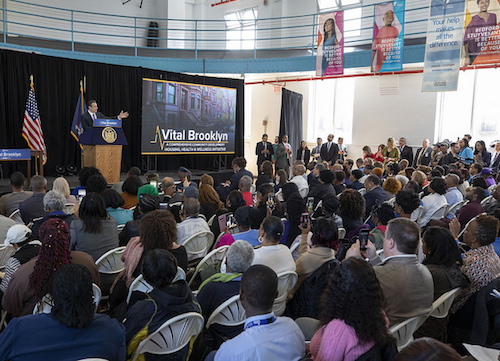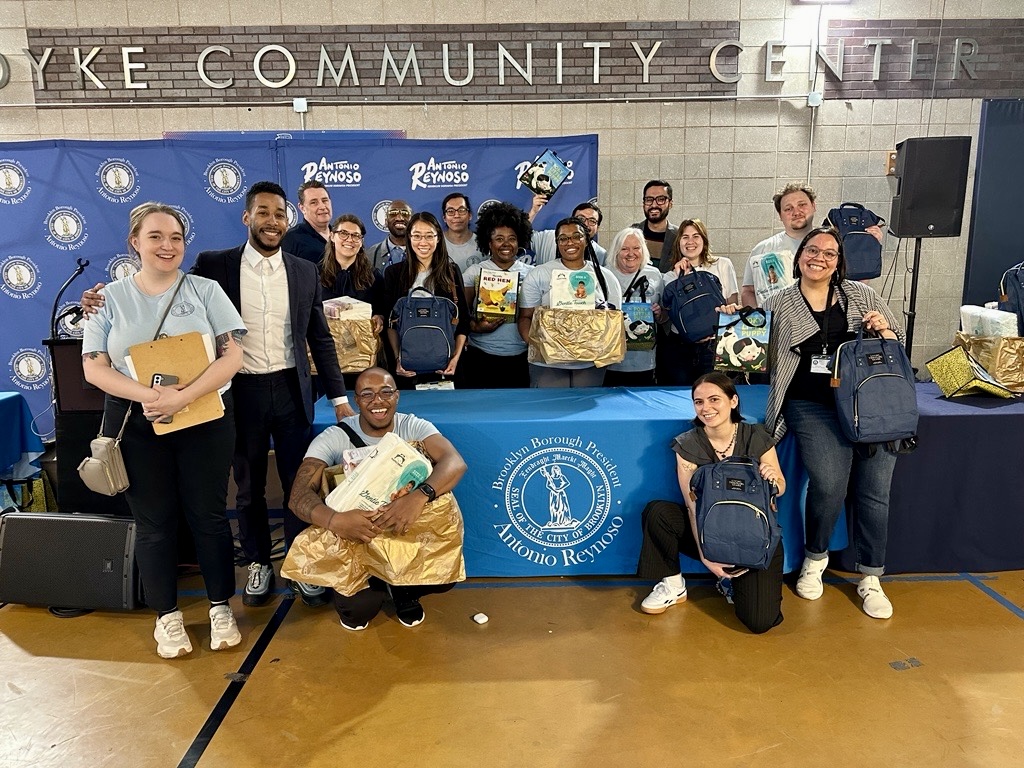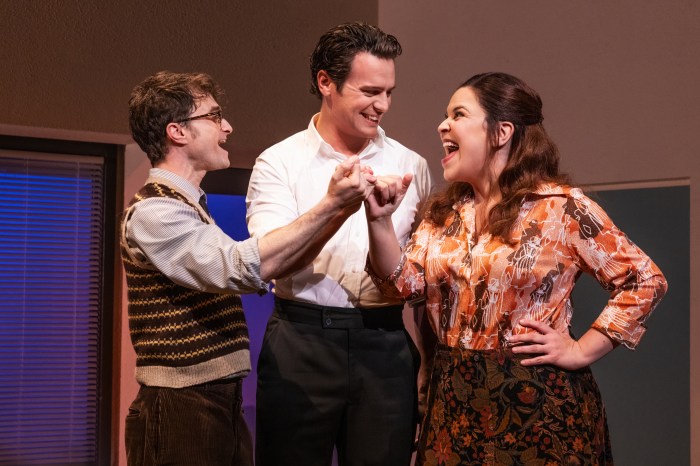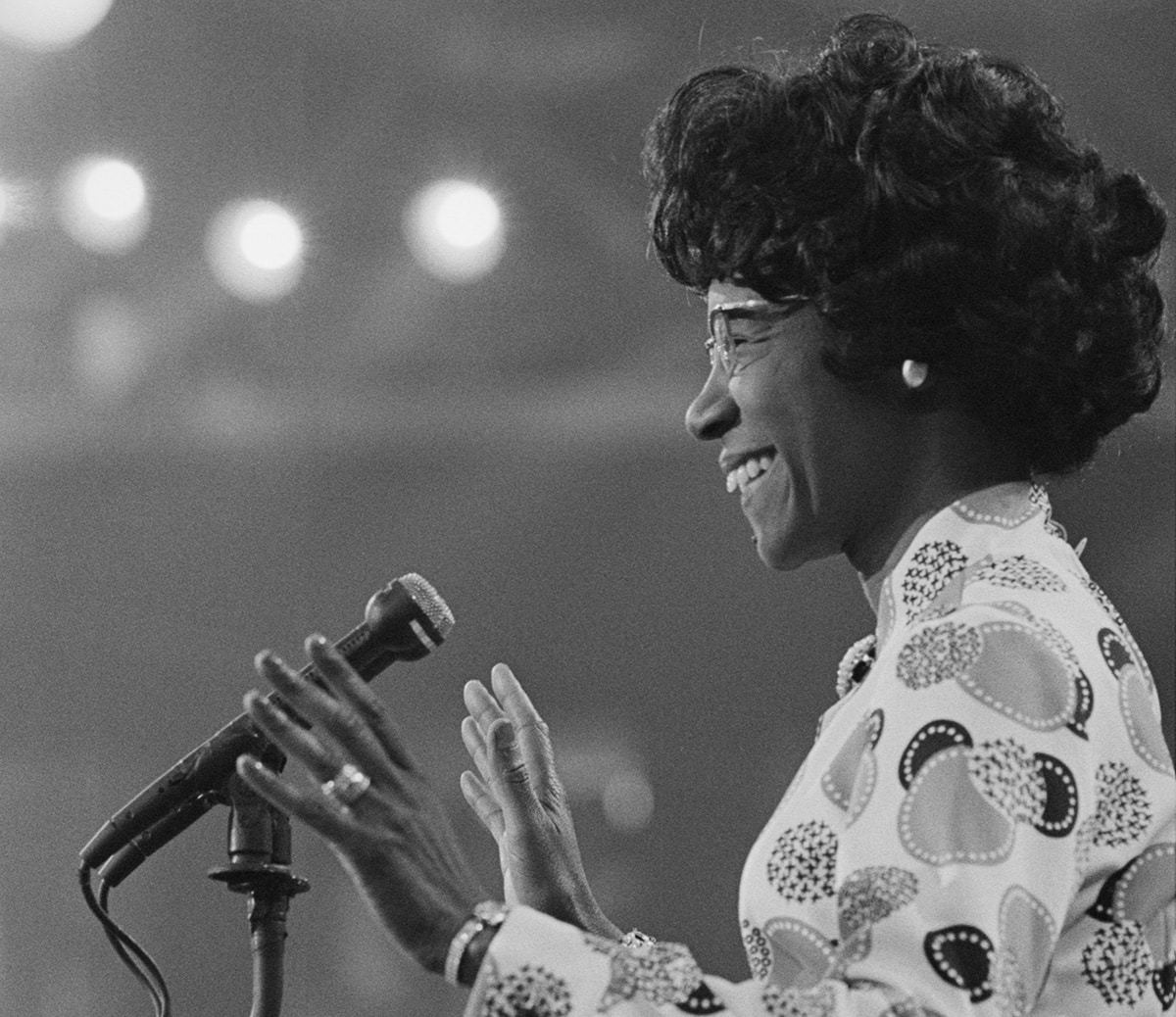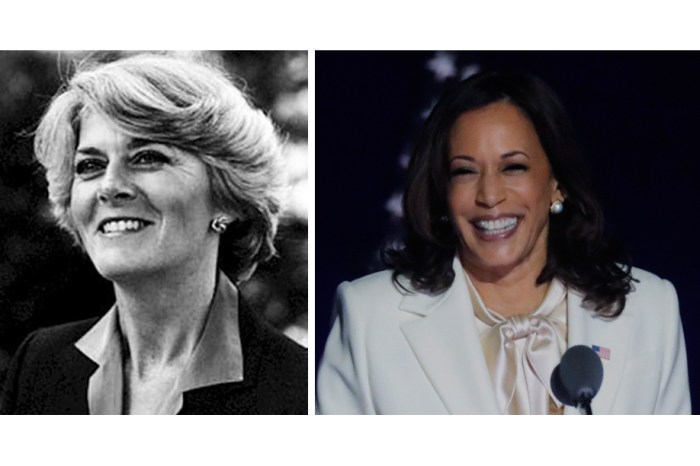Gov. Andrew M. Cuomo came to the Bedford-Stuyvesant YMCA yesterday to kick of phase two of a $1.4 billion Vital Brooklyn initiative, which is transforming the Central Brooklyn region through a holistic approach addressing chronic social, economic, and health disparities.
Specifically, Cuomo announced five requests for proposals (RFP) to construct more than 2,000 affordable homes on parcels of state-controlled land or owned by Brookdale University Hospital, and the state-owned Brooklyn Developmental Center.
These solicitations will advance the Vital Brooklyn initiative’s $563 million commitment to build 3,000 units of affordable housing in Central Brooklyn. Additionally, the governor announced a suite of awards and RFPs to improve access to open space, recreation, and healthy food; expand education and economic empowerment initiatives; improve community-based violence prevention; and enhance resiliency.
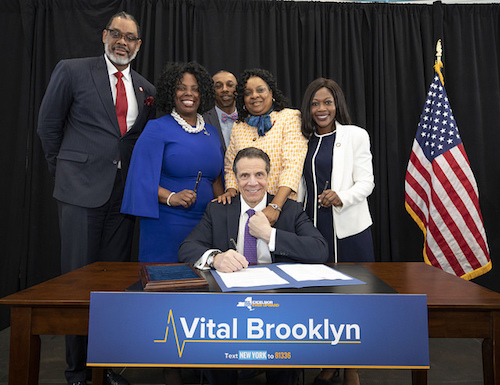
“Every New Yorker deserves equal access to health care, quality housing, outdoor recreation, and opportunities to earn a decent wage for a fair day’s work, but for too long Central Brooklyn has lacked the attention and investments needed to deliver equity for residents,” said Cuomo. “The launch of phase two builds on progress already made by continuing to invest in the holistic Vital Brooklyn Initiative to ensure men and women are provided fair housing opportunities within the growing community, as New York works to transform the region into a better, brighter Brooklyn for generations to come.”
Cuomo launched the Vital Brooklyn initiative in spring 2017, presenting the community with an array of options to create a new model for community development and wellness. He then charged each assembly member in Central Brooklyn with convening a Community Advisory Council (CAC) consisting of community leaders, local experts, advocates, and other stakeholders to assess these options—and to consider the unique needs and opportunities of their district.
State Senators representing parts of Central Brooklyn were also actively engaged in the process. Over several months, the CAC assembled in the community to participate in focused discussions with state agencies, empowering communities to program and to direct the committed state resources.
Since the launch of the initiative, a total of 25 community meetings have brought together nearly 100 key community stakeholders. The announcements were developed through and informed by this robust community-based planning effort.
Central Brooklyn is one of the most vulnerable areas in all of New York State, with measurably higher rates of obesity, diabetes and high blood pressure, limited access to healthy foods or opportunities for physical activity, high rates of violence and crime, wide economic disparities due to unemployment, and high poverty levels, and inadequate access to high quality health care and mental health services.
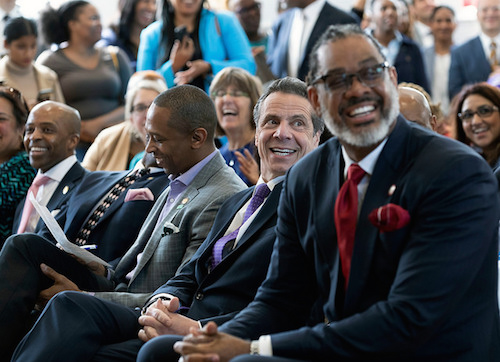
A large number of elected officials representing Central Brooklyn were at the announcement and Public Advocate Letitia James served as the MC. Among the elected officials on hand that KCP saw included State Senators Kevin Parker and Velmanette Montgomery, Assembly Members Nick Perry, Latrice Walker, Walter Mosley, Diana Richardson and Maritza Davila; and City Council Members Robert Cornegy Jr., Mathieu Eugene and Alicka Ampry-Samuel.
Among the many state allocations include $10.6 million to transform eight schoolyards into community playgrounds and open space; $3.1 million to transform nearly two dozen community gardens; $1.8 million to enhance four recreation centers; $500,000 for a mobile market grant program; $325,000 to open 12 new youth run farmers markets; $300,000 for a Food Insecurity Screening Pilot Program; $1.2 million for eight new community schools; $200,000 to build a community oyster reef and expand the billion oyster project curriculum; $50,000 for investment to the Double Jamaica Bay Restoration Corps Summer Youth Employment; and $250,000 in green job training grants.
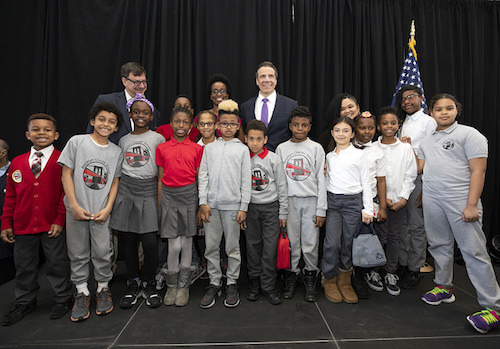
Other allocations include $600,000 to continue a unemployment strikeforce effort to help connect unemployed Central Brooklyn residents to jobs; $800,000 to integrate social and mental health services within street outreach programs; $500,000 to provide programming for young people; $825,000 to expand outreach on clean energy and efficiency programs; $243,090 to improve building efficiency; $1.1 million to to link Kings County Hospital, SUNY Downstate Medical Center and Kingsboro Psychiatric Center with a resilient source of on-site backup power; and $20.8 million for energy-related infrastructure projects;
In January 2018 Cuomo announced the award of $664 million in funding to One Brooklyn Health to support the state’s ongoing effort to create a sustainable health care system that expands access and transforms care throughout Central Brooklyn. A total of $36 million will be reserved for future awards under the program, resulting in total awards of $700 million when the program is completed.
This allocation is consistent with the recommendations in Northwell Health’s “The Brooklyn Study: Reshaping the Future of Healthcare,” Brookdale University Hospital Medical Center, Interfaith Medical Center and Kingsbrook Jewish Medical Center have partnered together to create One Brooklyn Health, which will serve as an integrated health care delivery system in Central Brooklyn.
“The funding coming into Central Brooklyn is so important because it not only streamlines our healthcare delivery system but also begins to address longstanding issues that affect the health of my constituents such as access to affordable housing, safe community spaces and fresh food. There is more to wellness than just doctor’s visits and I am thankful to see this recognized in the Vital Brooklyn Initiative,” said Montgomery.


